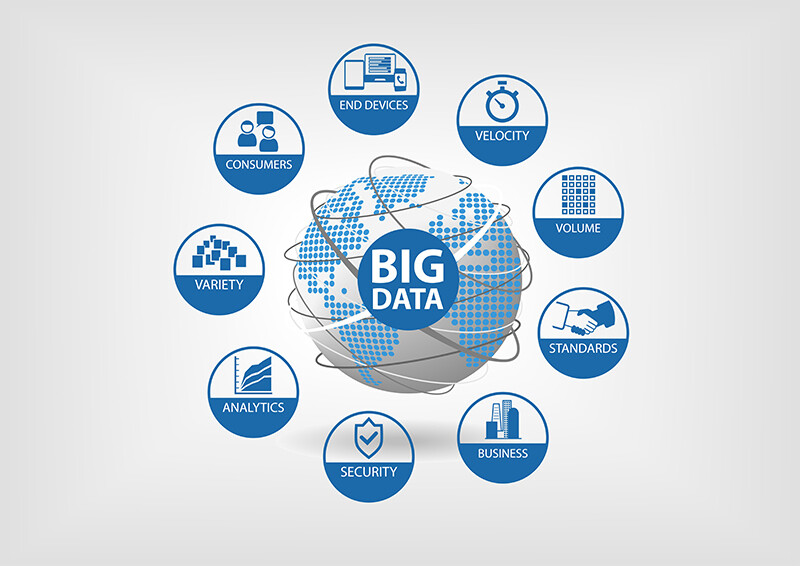

The Role of Big Data in Modern Business
In today’s fast-paced and highly competitive business landscape, companies are constantly searching for ways to gain a competitive edge over their rivals. One of the most effective ways to achieve this is by harnessing the power of big data. Big data refers to the vast amounts of structured and unstructured data that organizations generate on a daily basis. This data can come from a variety of sources, including social media, customer interactions, transactions, and sensors.
The role of big data in modern business is multifaceted and far-reaching. It has the potential to revolutionize the way companies operate, make decisions, and interact with their customers. In this article, we will explore the various ways in which big data is transforming modern business and why it is essential for companies to leverage this powerful tool.
Improved Decision Making
One of the most significant advantages of big data is its ability to provide businesses with actionable insights that can inform their decision-making processes. By analyzing large datasets, companies can identify patterns, trends, and correlations that may not be visible through traditional data analysis methods. This enables them to make more accurate predictions, identify opportunities, and mitigate risks.
For instance, a retailer can use big data to analyze customer purchasing habits, preferences, and behavior. By doing so, they can identify trends and patterns that can inform their inventory management, pricing, and marketing strategies. This can lead to increased sales, improved customer satisfaction, and reduced waste.
Enhanced Customer Experience
Big data also plays a critical role in enhancing customer experience. By analyzing customer feedback, preferences, and behavior, companies can tailor their products and services to meet the specific needs of their customers. This can lead to increased customer loyalty, retention, and satisfaction.
For example, a company can use big data to analyze customer feedback on social media and review sites. By doing so, they can identify areas where they can improve their products and services, and make necessary changes to enhance customer experience.
Increased Operational Efficiency
Big data can also help companies to optimize their operations and reduce costs. By analyzing data on production, logistics, and supply chain management, companies can identify areas where they can streamline their processes, reduce waste, and improve productivity.
For instance, a manufacturer can use big data to analyze production data and identify areas where they can optimize their processes. By doing so, they can reduce waste, improve quality, and increase productivity.
New Business Models
Big data is also enabling companies to create new business models that were not possible before. For example, companies like Uber and Airbnb have created new business models that are based on the analysis of large datasets.
Competitive Advantage
Finally, big data can provide companies with a competitive advantage over their rivals. By leveraging big data, companies can gain insights that their competitors may not have. This can enable them to make better decisions, respond to market changes more quickly, and innovate faster.
Challenges of Big Data
While big data offers numerous benefits, it also poses several challenges. One of the biggest challenges is the sheer volume of data that companies need to analyze. This requires significant investments in data storage, processing power, and analytics tools.
Another challenge is the quality of the data. Big data is often messy, noisy, and inconsistent, which can make it difficult to analyze and extract insights.
Privacy and Security Concerns
Big data also raises several privacy and security concerns. Companies need to ensure that they are collecting, storing, and analyzing data in a way that is secure and respectful of their customers’ privacy.
Skills and Talent
Finally, big data requires specialized skills and talent. Companies need to have data scientists, analysts, and engineers who can collect, analyze, and interpret large datasets.
Best Practices for Implementing Big Data
While implementing big data can be challenging, there are several best practices that companies can follow to ensure success. These include:
Start Small
Implementing big data should start with a small pilot project that can demonstrate the value of big data to the organization.
Define Clear Goals
Companies should define clear goals and objectives for their big data projects. This will ensure that they are collecting and analyzing the right data to achieve their goals.
Invest in the Right Tools
Companies should invest in the right tools and technologies to collect, store, and analyze big data. This may include investing in data lakes, cloud-based storage, and advanced analytics tools.
Develop a Data-Driven Culture
Companies should develop a data-driven culture that encourages experimentation, innovation, and collaboration.
Conclusion
In conclusion, big data is transforming modern business in a wide range of ways. It is enabling companies to make better decisions, enhance customer experience, optimize operations, and create new business models. While there are several challenges associated with big data, companies can overcome these challenges by following best practices and investing in the right tools and talent.
As the volume and velocity of data continue to increase, companies that fail to harness the power of big data will be left behind. It is essential for companies to recognize the role of big data in modern business and to take steps to leverage this powerful tool to gain a competitive edge.





2 thoughts on “The Role of Big Data in Modern Business”